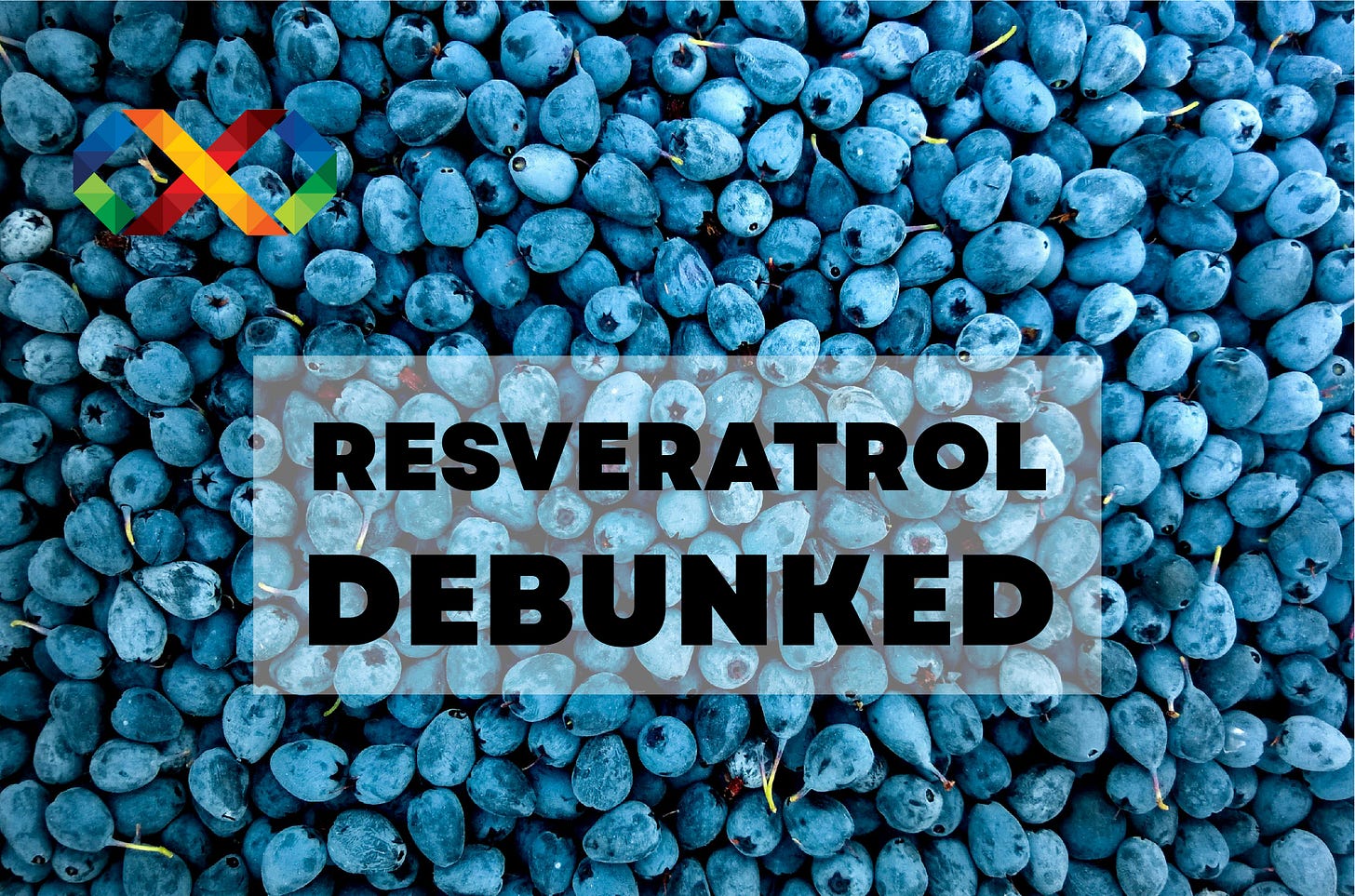Resveratrol: Between Hype, Hope, and Scientific Reality 🍷🧬
From Hype to Hard Truths: What 200+ Human Trials Now Reveal About Resveratrol
In 2012, a major research scandal shook the world of nutrition science.
One of resveratrol’s most prolific researchers was found to have falsified data in 145 instances across 26 published studies — many of which helped build the early hype around this so-called “miracle molecule.”
It was a sobering moment. A compound once hailed for anti-aging, heart protection, and even cancer-fighting abilities had to be re-evaluated with fresh eyes.
So where do we stand now?
More than 200 human trials have since examined resveratrol without the shadow of fraudulent data. The molecule still shows potential — but the picture is far more nuanced.
Let’s explore what we now know: where resveratrol helps, where it doesn’t, and who might benefit most from using it.
🍇 What Is Resveratrol?
Resveratrol is a polyphenol found in red wine, grapes, peanuts, and berries. In lab animals, it showed promise: extending lifespan, improving metabolism, reducing inflammation, and activating “longevity genes” like SIRT1.
These findings sparked excitement around resveratrol as a potential anti-aging supplement. But translating those early results to humans has been inconsistent.
(NIH 2024)
❤️ Heart Health: Some Support, But No Clinical Breakthrough
Resveratrol has been tested for its cardiovascular benefits across many studies, especially in people with hypertension or metabolic syndrome.
What the research supports:
Modest reductions in blood pressure, especially systolic pressure.
Improvements in vascular function and arterial stiffness.
Reduced C-reactive protein (CRP), an inflammatory marker linked to cardiovascular disease.
But there are important limitations:
No evidence that resveratrol lowers the risk of heart attacks, strokes, or cardiovascular mortality.
A long-term observational study found no link between resveratrol intake and cardiovascular outcomes in older adults.
In some cases, high doses have had unintended effects, such as increased LDL cholesterol or blunted cardiovascular benefits from exercise in older men.
🟢 Bottom Line: Resveratrol may modestly improve certain cardiovascular risk markers, particularly in people with existing issues. But there’s no evidence yet that it prevents serious heart events or improves survival.
🧁 Metabolic Effects: Strongest Evidence in At-Risk Groups
This is where resveratrol shows the most consistent clinical benefit.
Studies in people with type 2 diabetes or metabolic syndrome report:
Improved insulin sensitivity
Lowered fasting glucose and HbA1c
Better blood pressure and inflammatory profiles
These benefits are most pronounced in individuals with poor baseline metabolic health. Healthy individuals, by contrast, usually see minimal to no change in glucose, insulin, or lipid levels.
Additionally, the dosage matters. Trials using 500–1000 mg/day for several months tend to show stronger results than those using low doses (<150 mg).
🟢 Bottom Line: For those with insulin resistance or early-stage diabetes, resveratrol may be a valuable adjunct to lifestyle changes and standard care. It’s not a cure, but it does improve several key markers.
🧠 Brain Health: Intriguing, But Preliminary
Some small trials suggest resveratrol may improve memory and brain function in older adults, particularly when combined with metabolic benefits.
Key findings include:
Improved memory performance (e.g., word recall) in overweight adults.
Increased hippocampal connectivity on brain imaging.
Lower HbA1c and reduced body fat — metabolic improvements that may support brain health.
In a one-year trial in Alzheimer’s patients, high-dose resveratrol did not improve cognition, but it altered Alzheimer’s biomarkers and was well tolerated, even at 2 g/day.
🟡 Bottom Line: Promising results in specific populations (older adults with metabolic issues), but inconsistent findings overall. Resveratrol may support brain health, but it’s not a proven treatment for cognitive decline.
(Neurology.org — NIH 2014 — Sciencedirect 2021 — NIH 2019)
🧬 Cancer: Lab Promise, Human Uncertainty
In preclinical models, resveratrol shows anti-cancer effects: inhibiting tumor growth, inducing apoptosis, and reducing inflammation.
In humans:
A colon cancer study showed lower tumor cell proliferation before surgery.
But a small multiple myeloma trial using SRT501 (a high-dose form of resveratrol) was halted due to kidney toxicity.
The compound’s estrogen-like activity raises potential concerns in hormone-sensitive cancers like breast and prostate.
🟡 Bottom Line: The anti-cancer potential is real in lab models, but human evidence is extremely limited and does not yet justify clinical use. Resveratrol may be contraindicated in individuals with hormone-sensitive conditions.
⚖️ Resveratrol: Hype vs. Real Use
Resveratrol was hyped as a miracle anti-aging pill — but human trials tell a more grounded story. It activates key longevity pathways (SIRT1, AMPK) and can improve blood pressure, blood sugar, and inflammation in certain people. But it doesn’t prevent major diseases or extend lifespan (yet), and early fraud in the field inflated its reputation.
✅ Helpful for:
Adults with type 2 diabetes or metabolic syndrome
Older adults with mild cognitive issues and metabolic risk
People with inflammation or borderline high blood pressure
🚫 Probably skip if:
You’re young and healthy (little benefit, may blunt exercise gains)
On multiple meds (enzyme interference)
Have hormone-sensitive cancers, pregnant, or breastfeeding
💬 What’s your take on resveratrol? Have you tried it? Seen any benefits — or nothing at all? Drop your experience or questions in the comments 👇



